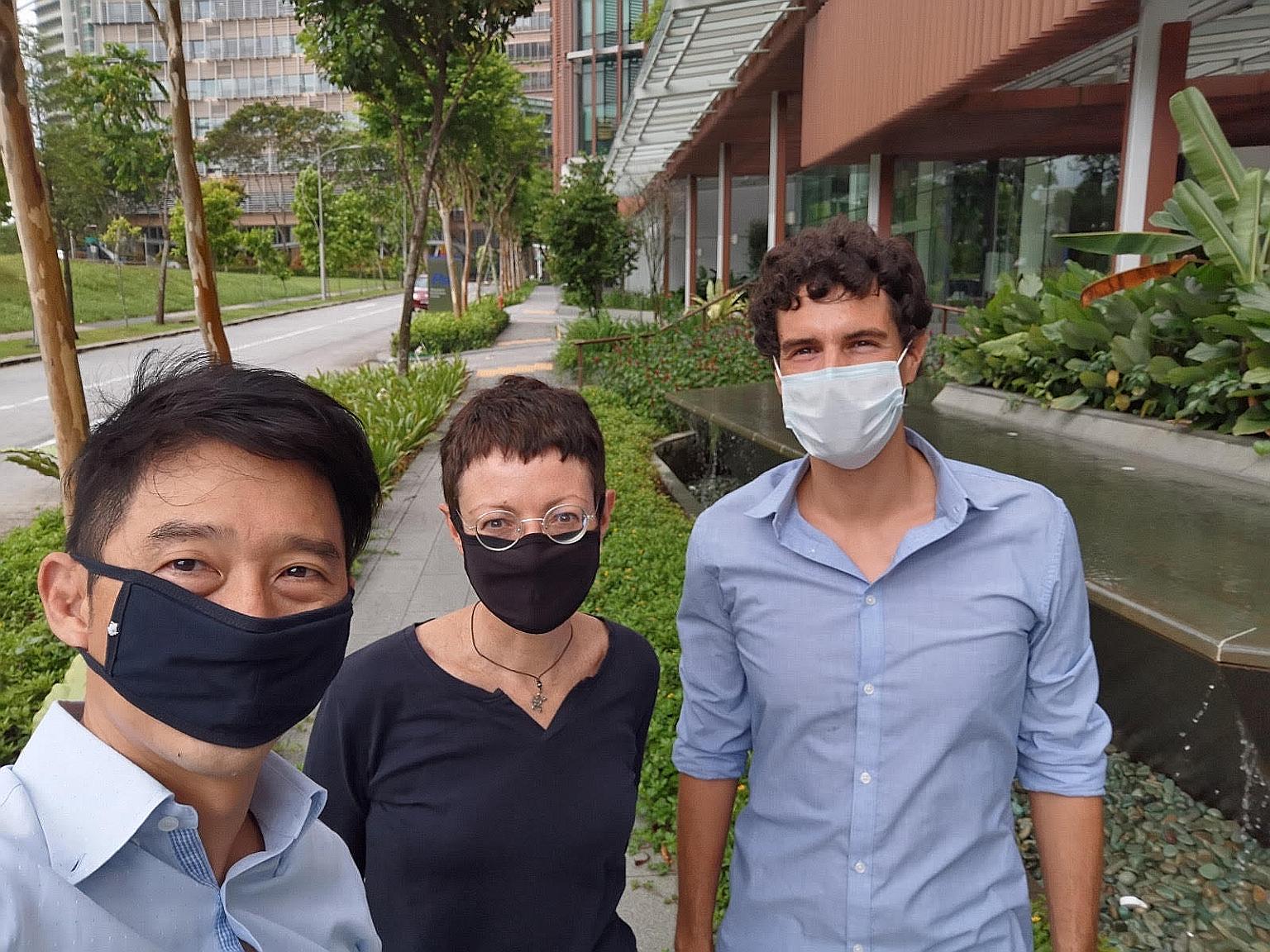Biotech company studying immune response to Covid-19
Sign up now: Get ST's newsletters delivered to your inbox

(From left) Immunoscape's chief executive Ng Choon Peng, its chief operating officer Alessandra Nardin, and its associate director and head of technology development Yannick Simoni.
PHOTO: IMMUNOSCAPE
A biotechnology firm based in Singapore has joined in the global effort to find a vaccine against Covid-19.
Immunoscape has tied up with partners here and overseas on two studies to find out how patients' immune systems react to the coronavirus which causes Covid-19.
The goal of the projects, which started earlier this month, is to study the behaviour of Covid-19-specific immune cells, which recognise and kill cells infected by the virus.
The studies will involve using immune profiling technology developed by Immunoscape that can screen a few hundred antigens - molecules from the coronavirus that stimulate an immune response.
The research will take a few months and will also delve deeper into how T-cells, which fight and kill viruses, are activated.
Dr Alessandra Nardin, Immunoscape's chief operating officer, said: "We want to know the functions and properties of T-cells against the coronavirus - their numbers, potency, how long they persist. The knowledge of what makes a good immune response is important for vaccine development."
Vaccine development involves identifying and developing a new antigen into a final product that provides immunity.
Immunoscape's first project is with infectious disease immunologists, Dr Antonio Bertoletti from Duke-NUS Medical School and Dr Carlo Ferrari from the University Hospital of Parma in Italy.
The aim is to study Covid-specific T-cells in about 50 patients who have recovered from the disease, using Immunoscape's techniques. Most of the samples are from Italy and some are sourced locally.
Dr Nardin said the study will also compare the T-cell response in patients who had mild and severe Covid symptoms, and if there were differences.
"This can provide hints about the immune response that is needed to control the disease early," she said.
-
S'pore's search for a vaccine
Scientists around the world are rushing to produce a Covid-19 vaccine, and there could eventually be several different ones on the market. Researchers in Singapore, working with overseas players, are part of this effort.
The second project, with infectious disease expert Patrick Reeves, from the Massachusetts General Hospital in Boston, in the United States, aims to understand how the immune system itself contributes to the progression of Covid-19 to a more severe stage.
The target is to collect between 30 and 50 samples from patients with acute infections in Boston, and send over Immunoscape's reagents - prepacked solutions used for testing - to the US for tests to be carried out in a laboratory there.
The study hopes to track these patients over time, from the point of diagnosis to a couple of weeks later, and after they recover.
The purpose is to see if there is any abnormal activation of immune cells that triggers the disease progression, said Dr Nardin.
"It would be important to see if there are early signs of the abnormal activation, so that we can predict which patients might get a severe disease," she said.
Reports have shown that some patients start with mild symptoms for a while before their condition worsens.
Dr Yannick Simoni, associate director and head of Immunoscape's technology development, said: "It's called a cytokine storm - the idea is that your immune system reacts inappropriately to the virus and becomes overactivated, causing inflammation."
This happens with flu too, he said, adding that a vaccine is critical for Covid-19, because it will train the immune system to quickly respond to the infection and avoid the side effects, just like flu vaccines.
Immunoscape's chief executive Ng Choon Peng said three-quarters of its 20 staff here have taken on Covid-19 work since last month, with seven of its scientists and research officers working on it in its lab in Biopolis.
"Whatever new information we gather about underlying immune response will help vaccine developers, and hopefully speed up the process," said Mr Ng.
The company is in talks with four to five such developers in the US, Europe and Australia. "We're also targeting to publish some of the data so the global community will benefit," said Mr Ng.


